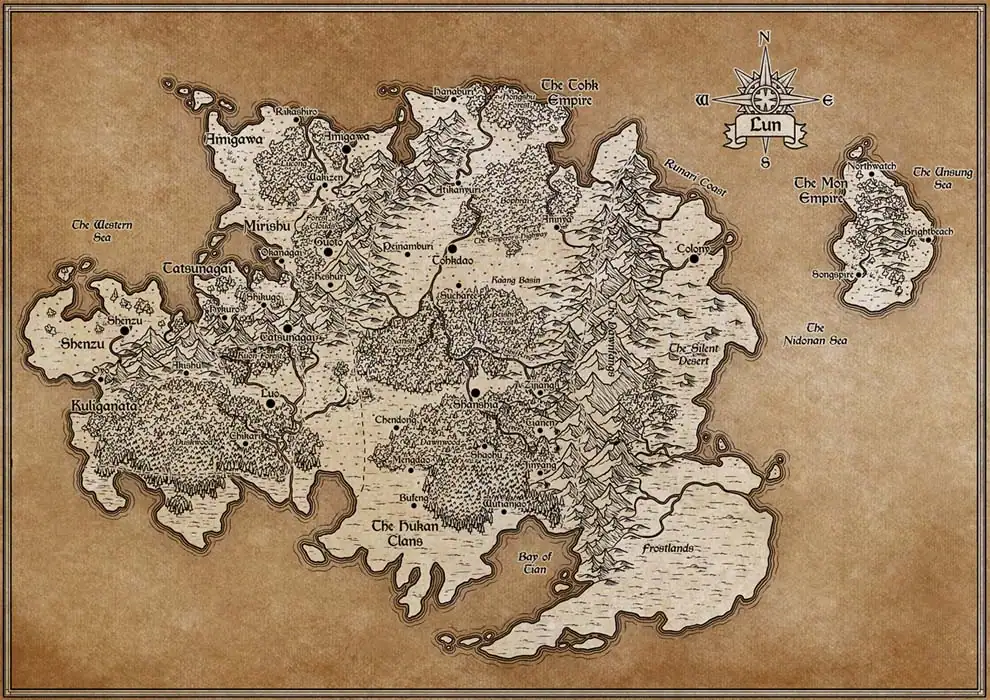Map of Lun
Map of the world of Lun at the time of the events of The Emperor's Dream, illustrated by Veronika Wunderer.

The Tohk Empire
The current empire of the Hetanzou, founded by Ramreunya. Each year, every citizen must complete a basic test of mental and physical fitness called the Testing. Those that fail are given a week to set their things in order before being given a swift death. Each Hetanzou must also choose one of the Three Arts to practice, and practicing arts outside of one’s choice is forbidden.
The Hukan Clans
The ancestral nation of the Hukan people, made up of the nine Hukan Clans. Formerly governed by High King Kanlan of the Owl Clan until the war with the Het Kingdom, during which the High King and his three eldest sons were slain. After the war, the United Hukan Clans were governed by the council of Hukan clan chiefs.
The Mon Empire
The ancestral empire of the Montililun, whose lands include the Island and the city of Colony on the northeastern coast of Lun. Its people are known for being easy-going lovers of the sea and of songs.
Amigawa
Northernmost of the Banqilun nations, Amigawa is famous for its culture of dueling swordsmen and master bladesmiths. Young men and women travel to the capital of Amigawa city to learn the way of the sword from its prestigious dueling schools.
Mirishu
One of the Banqilun nations nestled into the western mountains, it is known for both growing high quality tea and for having some of Lun's finest tahashi distilleries.
Tatsunagai
Before the Hetanzou rose to power in the central region of Lun, Tatsunagai was known for having the grandest Lan Banti schools in the world. Though the Tohk cities and their universities have surpassed Tatsunagai's in grandeur, the nation remains a hotbed for masters of the art of Lan Banti.
Shenzu
The westernmost of the Banqilun nations and the westernmost point of Lun, Shenzuans mostly rely on fishing and shipping large quantities of rice to other nations via their l'anti wheel powered coastal barges.
Kuliganata
Dominated almost entirely by the Duskwood forest, Kuliganata is the southernmost of the Banqilun nations. Many of its people make their homes in treetop villages.